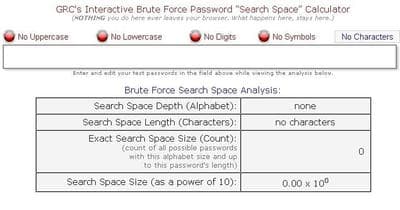Advertisement
Making A Secure Password--That You Won't Forget
Resume
Last week, federal authorities arrested Christopher Chaney and charged him with hacking into the e-mail accounts of celebrities like Scarlett Johansson and Mila Kunis.
But, as many of us unfortunately know, celebrities aren't the only targets of e-mail hackers. We need passwords for our e-mail, our banks, social media sites, photo sharing sites — and more. So how can you make sure your password is secure?
Computer security expert Steve Gibson told Here and Now's Robin Young that there are ways to make your password harder to hack but still easy to remember.
He says adding a pattern of symbols at the end can make a password much harder to crack. For instance, Robin tested some passwords on Steve Gibson's Haystack calculator and found that the word "password" could be hacked in milliseconds, but "passwordH3!!!!!!" would take thousands of centuries to guess.
How To Make Password More Secure
- Don't use common passwords (See top 500 worst passwords of all time- language advisory)
- Don't use information from your life that can be found easily — birthdate, pet's name, maiden name
- Do pad your password with symbols: "Bubbles!!!!!!" or "Smile:):):):)" are more difficult to discover with the symbols
- Do use different passwords for different websites
- Do test password strength at the GRC Haystack Calculator by using a similar password — never enter your real password anywhere but the site you are logging into
Do We Need To Change Passwords Often?
Steve told Robin that, contrary to popular belief, it's not necessary to change a strong password. He writes:
"I see NO benefit, and only liabilities, associated with changing good strong passwords...There is no generally agreed upon security threat model that suggests any benefit from periodically changing a good solid and strong password... Periodically changing an already strong, safe and secure password does nothing other than create an opportunity for error during the change (which is why we're always asked to re-enter a newly changed password), and further needlessly burdens the user with the need to 'forget' their old password in addition to remembering a new one."
Note: Here & Now's Twitter account recently fell victim to a common phishing scam after our social media editor clicked on a link from another phished account.
Please do not click on any links from our Twitter feed @hereandnow that have messages like "Found a funny picture of you!" or "I saw a real bad blog about you, you seen this?."
As our social media director Robin Lubbock advises:
- If you find yourself on a Twitter login page (or any login page) always check the url in the address line at the top of your browser. Check that it matches the company whose page you are allegedly on.
- Don't click on links that could be phishing links.
Guest
- Steve Gibson, founder of Gibson Research Corporation and host of the Security Now! podcast. Gibson Tweets at @SGgrc.
This segment aired on October 17, 2011.